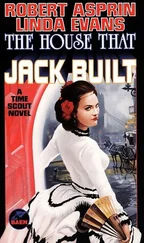O. Douglas - The House That is Our Own
Здесь есть возможность читать онлайн «O. Douglas - The House That is Our Own» — ознакомительный отрывок электронной книги совершенно бесплатно, а после прочтения отрывка купить полную версию. В некоторых случаях можно слушать аудио, скачать через торрент в формате fb2 и присутствует краткое содержание. Жанр: unrecognised, на английском языке. Описание произведения, (предисловие) а так же отзывы посетителей доступны на портале библиотеки ЛибКат.
- Название:The House That is Our Own
- Автор:
- Жанр:
- Год:неизвестен
- ISBN:нет данных
- Рейтинг книги:3 / 5. Голосов: 1
-
Избранное:Добавить в избранное
- Отзывы:
-
Ваша оценка:
- 60
- 1
- 2
- 3
- 4
- 5
The House That is Our Own: краткое содержание, описание и аннотация
Предлагаем к чтению аннотацию, описание, краткое содержание или предисловие (зависит от того, что написал сам автор книги «The House That is Our Own»). Если вы не нашли необходимую информацию о книге — напишите в комментариях, мы постараемся отыскать её.
The House That is Our Own — читать онлайн ознакомительный отрывок
Ниже представлен текст книги, разбитый по страницам. Система сохранения места последней прочитанной страницы, позволяет с удобством читать онлайн бесплатно книгу «The House That is Our Own», без необходимости каждый раз заново искать на чём Вы остановились. Поставьте закладку, и сможете в любой момент перейти на страницу, на которой закончили чтение.
Интервал:
Закладка:
It was quite half an hour later that Kitty came into the book-room where Isobel was still arranging books, and flinging herself on the sofa announced, “For better or worse, Mrs. Auchinvole is mine.”
“She looks a dear,” said Isobel. “Did she like the flat?”
“Well, I doubt if she admired my drawing-room.”
“ ’Ome don’t seem ’ome without a h’aspidistra,” Isobel quoted.
“But what was more to the purpose, she thought highly of the kitchen and her own bed-sitting-room. The gas-fire specially appealed to her. We didn’t dwell too much on the subject of cooking. What she can do—or can’t do—will be revealed in time, but I can see that she’s keen on housework. She looked with real housewifely eye on the new paint. She looks a fresh, wholesome creature. I do hope she’ll be happy here. She did say that it would be a treat to have a place of her own—at present she has to share a room with two nieces. I asked her if she cared for reading, and she said, ‘Not just that awfully much,’ she likes to sew and knit, and enjoys films and shop windows. All the rest I’ll find out in due time. I shan’t expect perfection, neither must she.”
Isobel said, “My only fear is that you’ll spoil her. But that’s better than the other way.”
Kitty went on, “She says ‘Madam,’ which is rather surprising. At least she said it once, when she came in. When her first shyness wore off I could see her quite settling down for a nice confidential chat, so I got up and said I was sure she’d like to see her own room and the kitchen.”
“Oh yes, but once you’ve listened to the complete story of her life, that’ll be that. You can keep clear of it afterwards.”
“I daresay. I don’t want to seem uninterested or unkind, and I’ll certainly listen with patience—sympathy, too, I hope—to one recital, but she must understand she’s a working house-keeper not a companion.”
“So she will,” Isobel said soothingly, “and I know you won’t ever let her feel herself snubbed; that rankles. When is she coming?”
“I said Tuesday. Two or three days longer with you at Queen’s Court will be very pleasant. Really, it’s difficult to see how I can possibly get on without you, Isobel. You’ve been my rod and my staff so long. You’ll come and see me every day, won’t you?”
“Love to—as long as I’m in London.”
Kitty looked inquiringly at her friend, who went on, “I don’t seem to like the thought of the Queen’s Court without you. I suppose it’s seeing all your nice things and realising what fun it is to make a home that has made me dissatisfied with my homeless condition. I’ve got a sort of feeling that I’d like to settle down too, not in London, though, somewhere in the country, and make a place for myself.”
“Oh!” Kitty’s tone was flat. “I always thought of you as being near. . . . But that’s sheer selfishness on my part. You’re right, you know. You ought to have a place of your own. Where would you go?”
“I thought Scotland.”
“Oh, my dear, right away from me! I thought you didn’t care much for your native land.”
“I don’t know it. My idea is to go away now, next week, and stay some weeks somewhere, and see how I like it.”
“Where, I wonder?”
“It’s all the same to me, Highlands or Lowlands, but I think on the whole I’d rather be in the Lowlands. My people were Lowland, and I don’t think I’ve much feeling for far islands, and seals, and sad Hebridean songs.”
Kitty laughed. “I believe you. Neither have I, really. I’m Edinburgh, cold, east-windy Edinburgh, with nothing of the Gael in me. Isobel, you should go to the Borders. The country there’s as beautiful as there’s any need for, and the people are hard-headed but kindly. I believe I know just the place that would suit you—a village called Glenbucho. Some far-off cousins of mine—Veitch is their name—live there, or lived, perhaps, for they may be all gone—in a jolly old white-washed house. The old laird must be dead now, but there was a son, a red-haired little boy called Gideon! I’ll tell you what I’ll do. I’ll write to the parish minister and ask if there are any rooms to let. He’ll be sure to know.”
“No, don’t,” Isobel cried, rather alarmed at her friend’s precipitate ways. “I must think it over first. It’s just an idea at present. Tell me more about the place before I decide.”
“I don’t know much,” Kitty confessed, “which isn’t surprising, seeing that it’s more than twenty years since I was there; but I can tell you lots about the Borders, if that’ll interest you. Did you ever read Jean Lang’s Land of Romance ? It’s somewhere here. I’ll rout it out.”
CHAPTER VI
Table of Contents
When wheat is green, when hawthorn buds appear.
A Midsummer Night’s Dream
By the end of the next week Isobel was in the Royal Scot on her way to Glenbucho.
Kitty had been the hustler. Shocked by her own selfish desire to keep her friend near her, and convinced that this break in Isobel’s life was the best thing that could happen to her, she had written to the parish minister of Glenbucho, asking if there were any suitable rooms to let in or near the village, and at the same time begging for information about the family of Veitch of Glenbucho Place. The reply she got (written on paper headed “Agnes Home, Merchant, Glenbucho”) explained that the minister being away on holiday, he had sent Mrs. Baillie’s letter to the present writer to answer. She begged to state that there were comfortable rooms to be had at the house of Mrs. Bruce, whose husband was the grieve on Glenbucho Place. The old laird had been dead for over a year and most of the land had been sold. The young laird, Mr. Gideon Veitch, had kept only the house itself, and the home-farm, and, shortly after his father’s death, had gone out to Canada, leaving Bruce, the grieve, in charge. The writer was certain that anyone would be very satisfied who took Mrs. Bruce’s rooms.
Kitty, having handed the letter to her friend, said:
“The Veitches, like so many others, seem to have fallen on evil days. They were never rich, but, unfortunately, they lived as though they were, so I expect the boy found everything in a sad muddle. When I say ‘boy,’ I forget that he must be thirty and over.”
Isobel read the letter, and said, “I like the sound of Agnes Home, Merchant, and I believe I’ll take Mrs. Bruce’s rooms. Glenbucho sounds quite a good place to view Scotland from. I needn’t stay there long, of course. I’ll journey about till I find what seems to me the ideal place to make a home.”
“I’d like to come with you,” said Kitty, “but I can’t. This flat’s going to take every penny I possess—and more.”
“But you don’t regret it?”
“Not yet,” said Kitty cautiously. “Already I’m fond of it. When I wake in the morning and see my own things round me; when I take my bath in my own spotless bathroom; when I eat my dinner with my Raeburn great-great-grandfather watching me; when I read and write letters in my book-room, and drink tea in my modish drawing-room, I can’t be sufficiently thankful that you gave me courage to take the plunge. And now you’re taking the plunge.”
“Yes,” said Isobel, rather bleakly, and went on, “but you don’t know how reluctantly! I’m safe here in London at the Queen’s Court, with my own small circle of friends, my little jobs of work safe and happy. But what I’m going to I don’t know.”
“That’s the fun of it,” said Kitty, polishing a Jacobean glass goblet as she spoke. “You’re going out to meet adventure.”
“Are there likely to be many in Glenbucho?”
“You never can tell. I’m sorry Gideon Veitch has gone to Canada. I’d have asked him to look after you. I expect the little red-haired ruffian has grown up a good fellow.”
Читать дальшеИнтервал:
Закладка:
Похожие книги на «The House That is Our Own»
Представляем Вашему вниманию похожие книги на «The House That is Our Own» списком для выбора. Мы отобрали схожую по названию и смыслу литературу в надежде предоставить читателям больше вариантов отыскать новые, интересные, ещё непрочитанные произведения.
Обсуждение, отзывы о книге «The House That is Our Own» и просто собственные мнения читателей. Оставьте ваши комментарии, напишите, что Вы думаете о произведении, его смысле или главных героях. Укажите что конкретно понравилось, а что нет, и почему Вы так считаете.




![Альфред Ван Вогт - Вечный дом / The House that Stood Still [= А дом стоит себе спокойно…; Обитель вечности]](/books/276568/alfred-van-vogt-vechnyj-dom-the-house-that-stood-thumb.webp)







